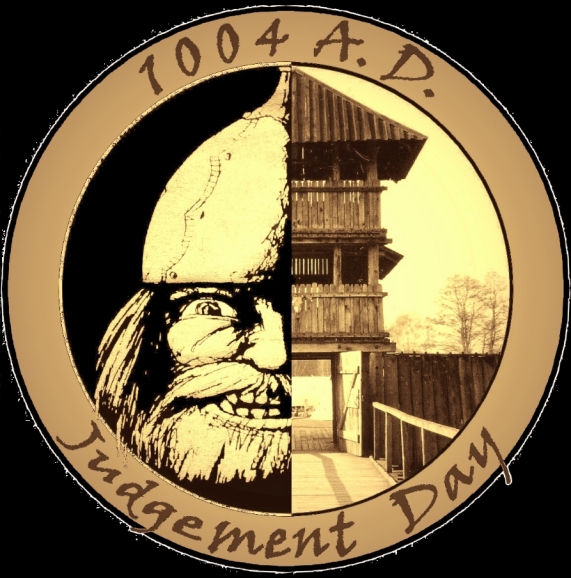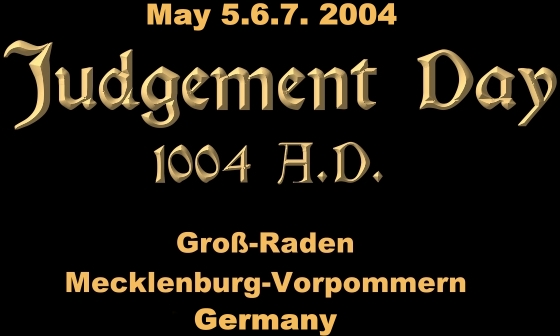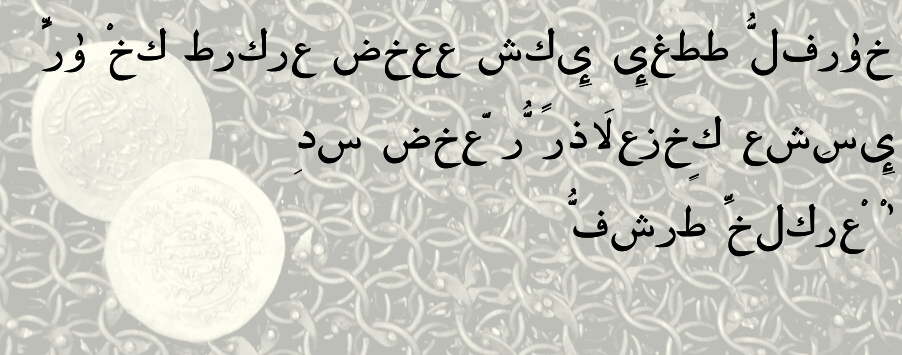

 |
|||
 |
|||
 |
|
Radegard 973 A.D.
Taken from the translation of ibn Ja'q├╗b┬┤s* travelling report:
ŌĆ×... oppidum clarum et civitas magna quae appellant castellum radegardensis was situated at the far end of a small peninsula. To its eastern, southern and western ends the castle was secured not by artificial ditches but by natural banks. With water flowing around these three sides, the only access was a road made of wooden planks passing through the wild fens and swamps which were protecting its northern end.
Neighbouring the castle, a temple and a trading post formed part of the site. Here foreign merchants could offer their goods after they had paid their due tributes to the temple. Crammed houses were situated there. In fact, the houses were standing so close to each other that if a catapult had shot stones, hardly any missile would hit a patch of open ground. The settlement, too, was surrounded by water but to the North it was limited by a ditch and a wall. The access was secured by a tower three stores high and completely made of wood.
For the inhabitants of this region, the castle was a safe place in times of peril. Amidst the buildings was an even place on which an exquistely crafted wooden temple had been erected, graceful not only by the splendour of its decoration but because of the solemnity of the idols set up inside.
The templeŌĆÖs outside was decorated with accurately carved sculptures and many a pagan idol. There was but a single entrance for those coming in. But the high priest alone was allowed to enter to carefully clean the place with a broom. He had to take care not to exhale inside the temple, so each time he had to breathe in or out he had to go outside to not stain his god with mortal breath.
Inside the temple was said to be a giant idol, much bigger than a man, of wondrous appearance, with four heads and as many necks. Two of these heads were watching over the chest and the same number over the back. Furthermore it seemed that of each pair one head was looking to the right while the other one was looking to the left. Its solemnity was even raised by a most giant sword with its hilt and scabbard adorned with intricate decorations of sheer silver.
Consecrated to the idol were priests, held in no lesser esteem than the king himself, and they supervised sacrifices and many obscure religious customs. Having taken the oracle-stavesŌĆÖ counsel, the priest would announce a feast to honour the gods. Then many men, women and children would come together and sacrifice cattle and sheep. But many would also offer human sacrifices, especially Christians. They were boasting that their gods would take most delight in Christian blood. When the victim was killed the priest would taste the blood to be most capable of receiving the godsŌĆÖ orders. After the sacrifices had been executed according to the old customs, the feasting and celebrations would commence . . .ŌĆØ
Thus reports the Arab embassador and merchant Ibrâhîm ibn Ja´qûb on his brief stay in Radegard during his journey to the new Polish realm of Mieszko. Almost a lifetime has passed since then, and today, in AD 1004, the situation has changed dramatically. For many years now the city walls of Radegard have been occupied by German Saxon forces, the temple´s idol was torn down and the local population had to learn to live under the rule of the foreign occupants. But this fragile peace is suddenly threatened by the apearance of an unexpected guest. He bursts right into the preparations of the annual market and court day - there is not much time...
You are welcome to take part in "Judgement Day", our 1004 AD game. After Nico and Zuk had organized excellent games in the past two years, a new team has taken over. This game will take place close to Gross Raden in Mecklenburg-Vorpommern on May 5/6/7 2004. Now part of Northern Germany, a thousand years ago the area was situated between the expanding German empire and the young kingdom of Poland, torn by war, rebellion and Viking attacks. The game will run from Wednesday to Friday, so mind that it starts a day earlier than in previous years! We had to take into account that the game area partilly consists of a public open air museum and we want to use the days which are least frequented by visitors. Visitors will only be allowed in during opening hours (10-17 hrs) in small groups led by briefed guides, thus reducing any game disturbance to a minimum and ensure safety for everybody aswell as for your equipment. The traditional banquet with Slavic food and German beer will take place on Friday evening. All participants are very welcome to stay for the weekend after the game. Enjoy the wonderful landscape, relax, discuss the past game and present our hobby to the public. Traders may sell their goods. This weekend would also be our "thank you" to the museum for kind co-operation and letting us play there for three days. Visit the museum at http://www.gross-raden.de |
|
|